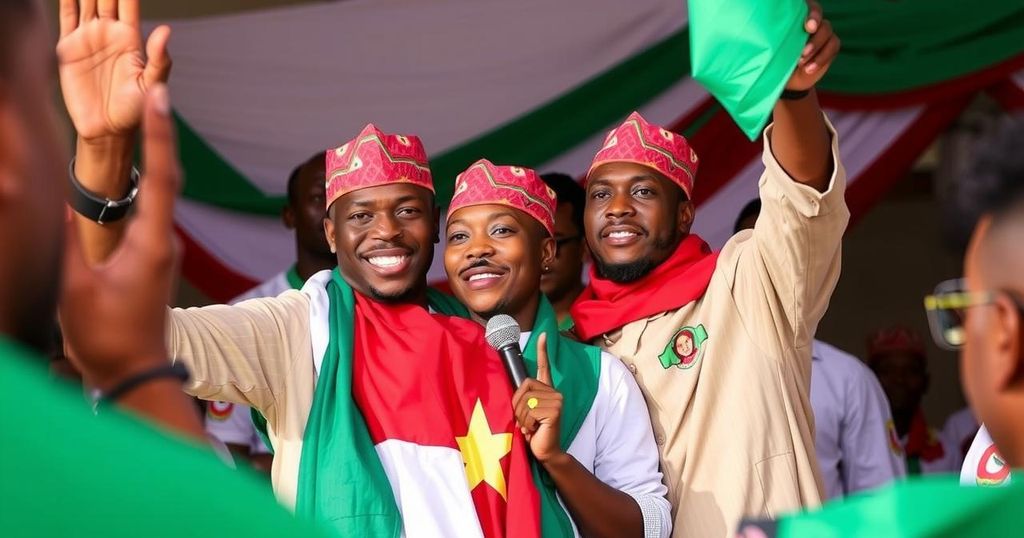World news
2024 ELECTIONS, AFRICA, AHMED BARTCHIRET, ASIA, BOKO HARAM, BURKINA FASO, CHAD, CHINA, COMMISSION, DEBY, ELECTIONS, EUROPE, FRANCE, GOVERNANCE, GOVERNMENT, MAHA, MAHAMAT DEBY, MAHAMAT IDRISS DEBY, MALI, NATIONAL ASSEMBLY, PARLIAMENTARY SEATS, PATRIOTIC SALVATION MOVEMENT, VOTER TURNOUT
Fatima Alavi
0 Comments
Chad’s Ruling Party Secures Majority in Controversial Parliamentary Election
Chad’s parliamentary election resulted in a significant majority for the ruling Patriotic Salvation Movement, securing 124 out of 188 seats, despite an opposition boycott. The voter participation rate was reported at 51.56%, raising doubts about the election’s credibility. The opposition criticized the election process as a “charade,” further complicating Chad’s transition towards democracy following years of military rule.
In a parliamentary election marred by controversy, Chad’s ruling party secured a significant majority, obtaining 124 out of 188 National Assembly seats, according to provisional results announced by the electoral commission. This election, held on December 29, was notably boycotted by over ten opposition parties, raising questions regarding its legitimacy. President Mahamat Idriss Deby’s party, the Patriotic Salvation Movement, promoted the election as a crucial step in the nation’s transition to democracy; however, opposition factions labeled it a “charade.”
The electoral participation rate was reported at 51.56%, which opposition leaders claim reflects widespread skepticism among voters about the election’s credibility. This election marks the first parliamentary voting in over ten years, occurring after Deby seized power following the death of his father, long-time President Idriss Deby Itno. This political event was deemed essential to address Chad’s pressing issues, including security threats and decentralized governance, as the nation grapples with challenges from militant groups such as Boko Haram and shifts in military relations with France.
Chad has been under military rule since 2021, after the passing of Idriss Deby Itno, who had governed the country for three decades. The political landscape has been tumultuous, with Mahamat Idriss Deby taking leadership and facing immediate challenges regarding governance and democracy. Following a disputed presidential election last year, this parliamentary vote is positioned as a vital developmental milestone for the nation, promising to distribute power and enhance local governance. However, the substantial boycott by opposition parties raises serious concerns about the validity and the democratic nature of the election process, highlighting political tensions in the country.
Chad’s latest parliamentary election results illustrate a deeply divided political climate, with the ruling party asserting dominance amidst significant opposition boycotts. The reported participation rate and the characterization of the election as a “charade” by opposition leaders point to a lack of confidence in the electoral process. As Chad continues to face security challenges and seeks to establish a more decentralized governance structure, the legitimacy of this election will remain a contentious issue affecting the nation’s stability and democratic aspirations.
Original Source: www.aljazeera.com




Post Comment